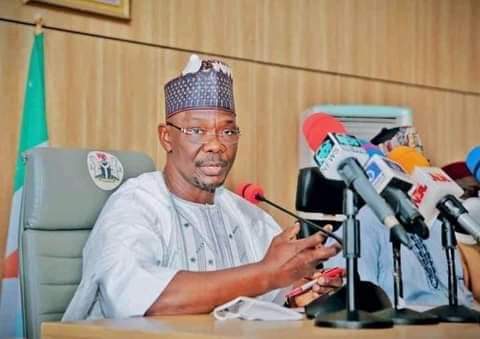Mr Abdullahi Sule, Governor of Nasarawa State.
Collins Sunday – Lafia
In order to block leakages and misappropriation of funds, the Nasarawa State Government has commenced implementation of the State and Local Government Areas Harmonisation of Revenue Law, 2020.
Governor Abdullahi Sule, speaking on Thursday in Lafia at a two-day summit for revenue generating ministries, departments and agencies on tax and revenue said that the state government would take stringent measures against violators of the law.
The Governor explained that with full implementation of revenue law in Nasarawa, collection of taxes and revenues accruable to the state would henceforth be harmonised and centralised in the state revenue service.
READ : Police Service Commission promotes nine CPs to AIG, 20,347 other senior officers
“The Summit will focus on sensitisation to ensure that Ministries, Departments and Agencies,( MDAs) local government council as well as other revenue collecting agencies are abreast with their roles as contained in the law.
 Advertisement.
Advertisement.
“The collection of revenue and sharing must be done in transparent way . We will also be truthful and honest so that everybody can get its share from the remittance of the revenue.
“We must obey the law for the betterment of the state,”Governor Sule said.
Also speaking, the Executive Chairman of Nasarawa State Internal Revenue Service (NSIRS) Hon . Ahmed Muhammed said the monthly Internally Generated Revenue (IGR) has risen to 100% despite the out break of COVID-19 pandemic.
RELATED STORY : Federal University Lafia gets anatomage machine for practicals
“Between 2015 and 2017, the board was able to generate over 2.7 billion , but in the three years that we came in office , we generated 27.5 billion . Similarly, despite the COVID-19 public health crisis , we have surpassed the amended 2020 budget by 3.8 billion which represents 27.8 % increase in the actual IGR collection for 2020,” Hon Muhammed said.
He explained that the board has also developed a strategic action plan in order to implement the law to its latter and would deploy personnel across the state to monitor revenue collection.
















